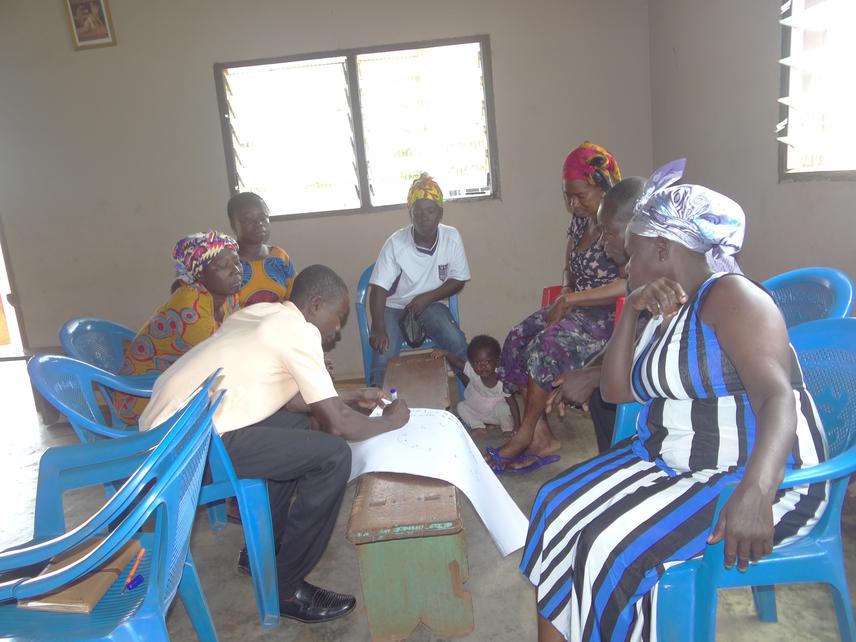Anne-Marie Deedei Ayerson
The "ECO-EMPOWER" project emerged from a profound recognition of the invaluable, yet underrepresented, role that indigenous women play in the conservation and preservation of critically endangered resources and associated indigenous knowledge. This endeavour was conceived upon recognising the dual threat faced by the Boabeng-Fiema Monkey Sanctuary (BFMS) in Ghana – the imperilled critically endangered Colobus vellerosus (IUCN, 2019) and the erosion of indigenous conservation knowledge due to modern cultural intrusion.

Group work with women leaders. © Anne-Marie/Wild Fauna Foundation.
The project aims to address the dual challenge of biodiversity loss and the erosion of indigenous ecological knowledge at the Boabeng-Fiema Monkey Sanctuary in Ghana. Through this initiative, we seek to empower indigenous women as stewards of biodiversity while promoting sustainable conservation practices within their communities.
At its core, ECO-EMPOWER aims to achieve the following main objectives:
1. Empowering Indigenous Women: We aim to empower indigenous women by providing them with training, resources, and opportunities to actively participate in biodiversity conservation efforts. Through capacity-building workshops and skill development sessions, we seek to enhance their knowledge and capabilities in conservation practices and community engagement.
2. Biodiversity Conservation: Our project focuses on implementing targeted conservation interventions aimed at protecting the critically endangered Black and White Colobus Monkey population and their habitat. By engaging local communities in conservation activities, we aim to mitigate threats such as habitat loss, human-wildlife conflict, and illegal hunting.
3. Preservation of Indigenous Knowledge: We recognize the invaluable role of indigenous knowledge in biodiversity conservation. Therefore, our project emphasizes the documentation, preservation, and transmission of indigenous ecological knowledge through community-led initiatives and participatory research methods.
Through collaborative partnerships with local stakeholders, governmental agencies, and non-profit organizations, we aim to foster a sense of ownership and collective responsibility for biodiversity conservation. By integrating traditional wisdom with contemporary conservation approaches, we hope to create sustainable solutions that benefit both people and nature.
The ECO-EMPOWER project is a holistic approach to biodiversity conservation that places indigenous women at the forefront of conservation efforts. By empowering them as agents of change, we aspire to create a more resilient and harmonious relationship between communities and their natural environment.